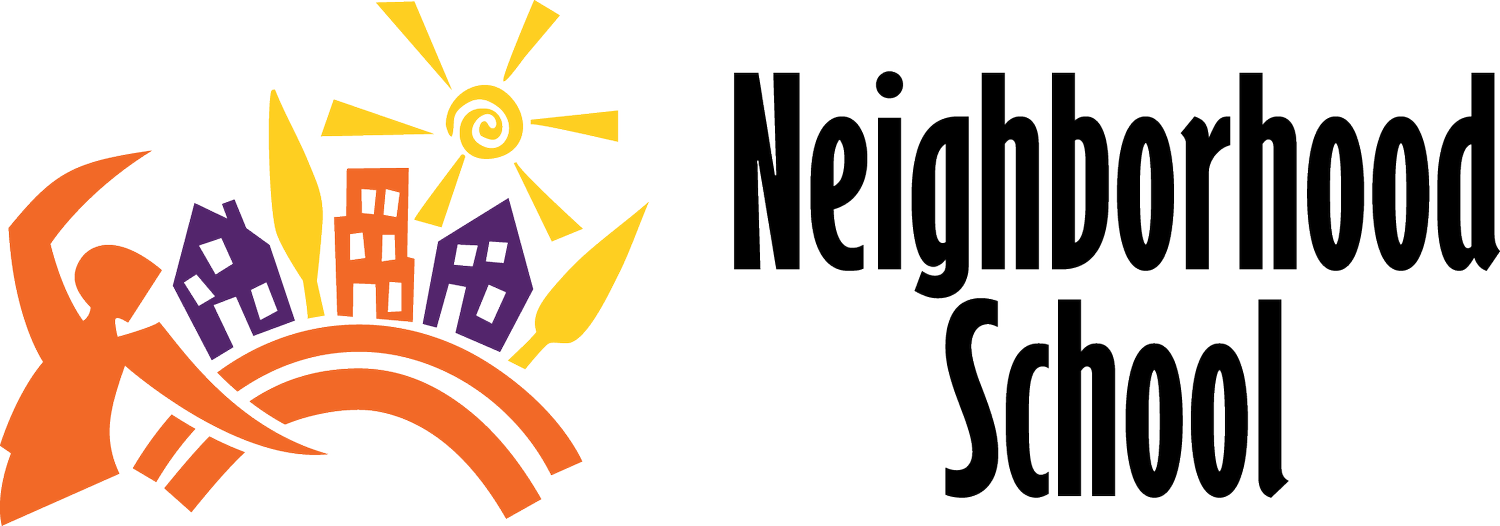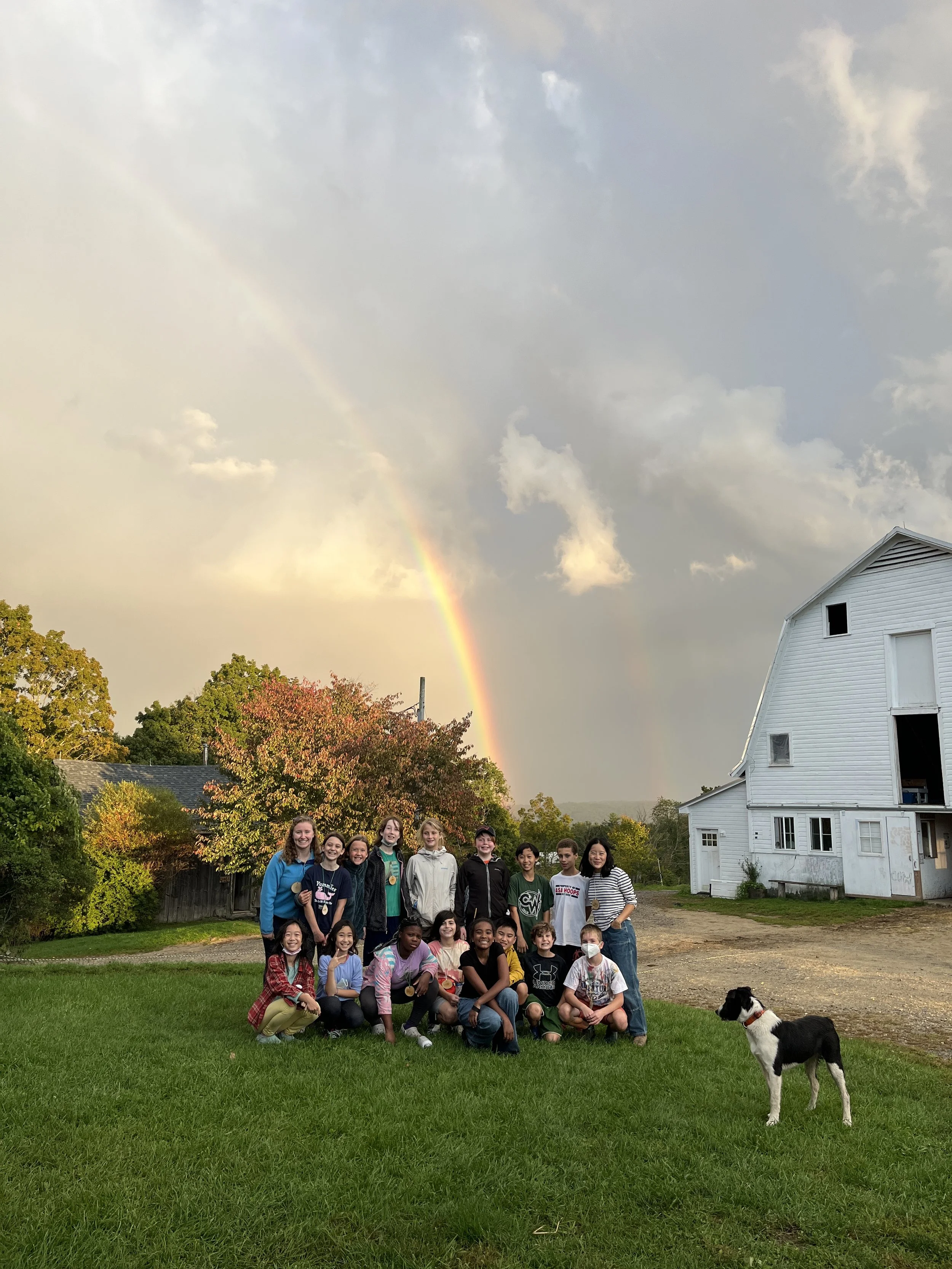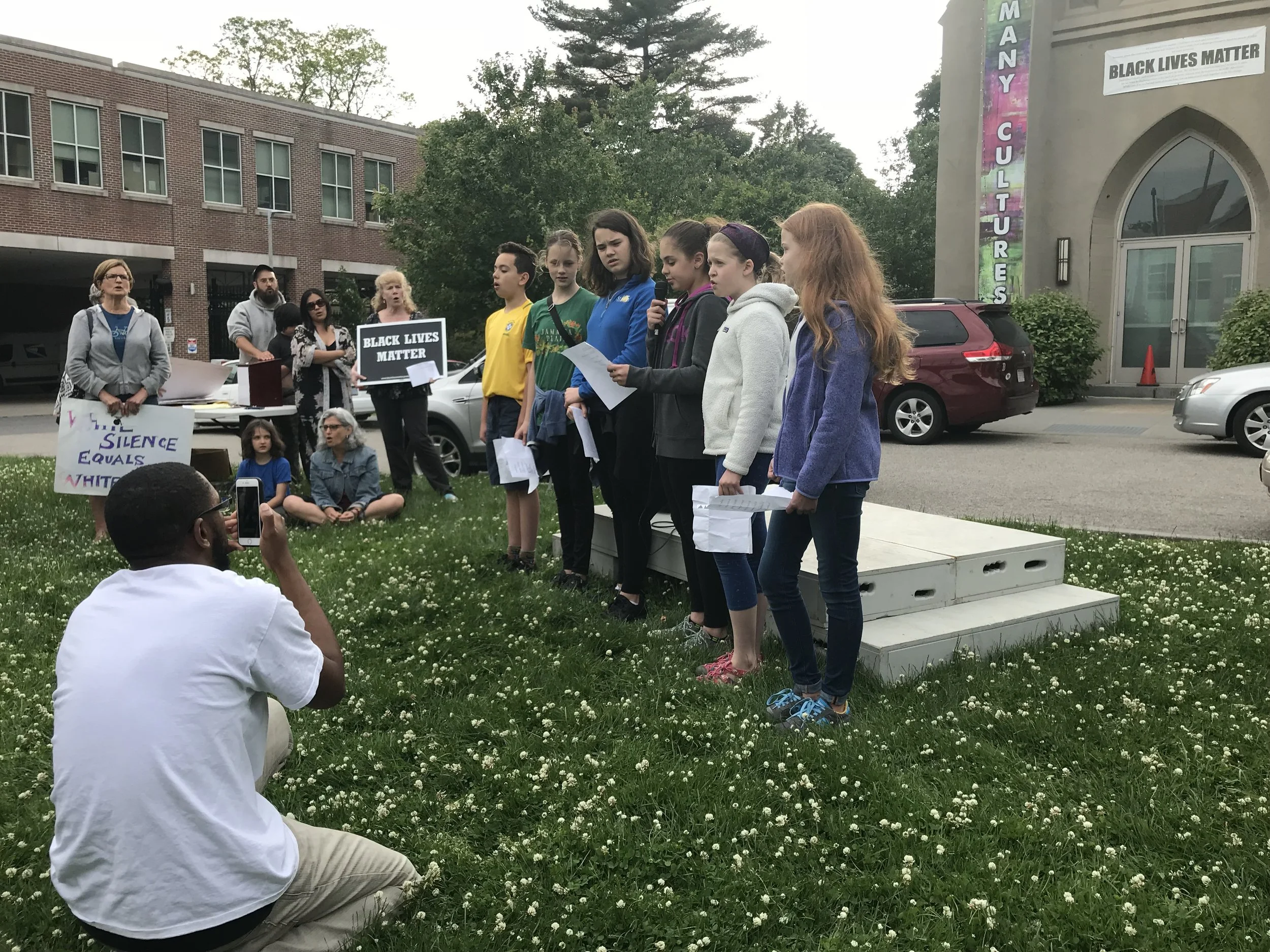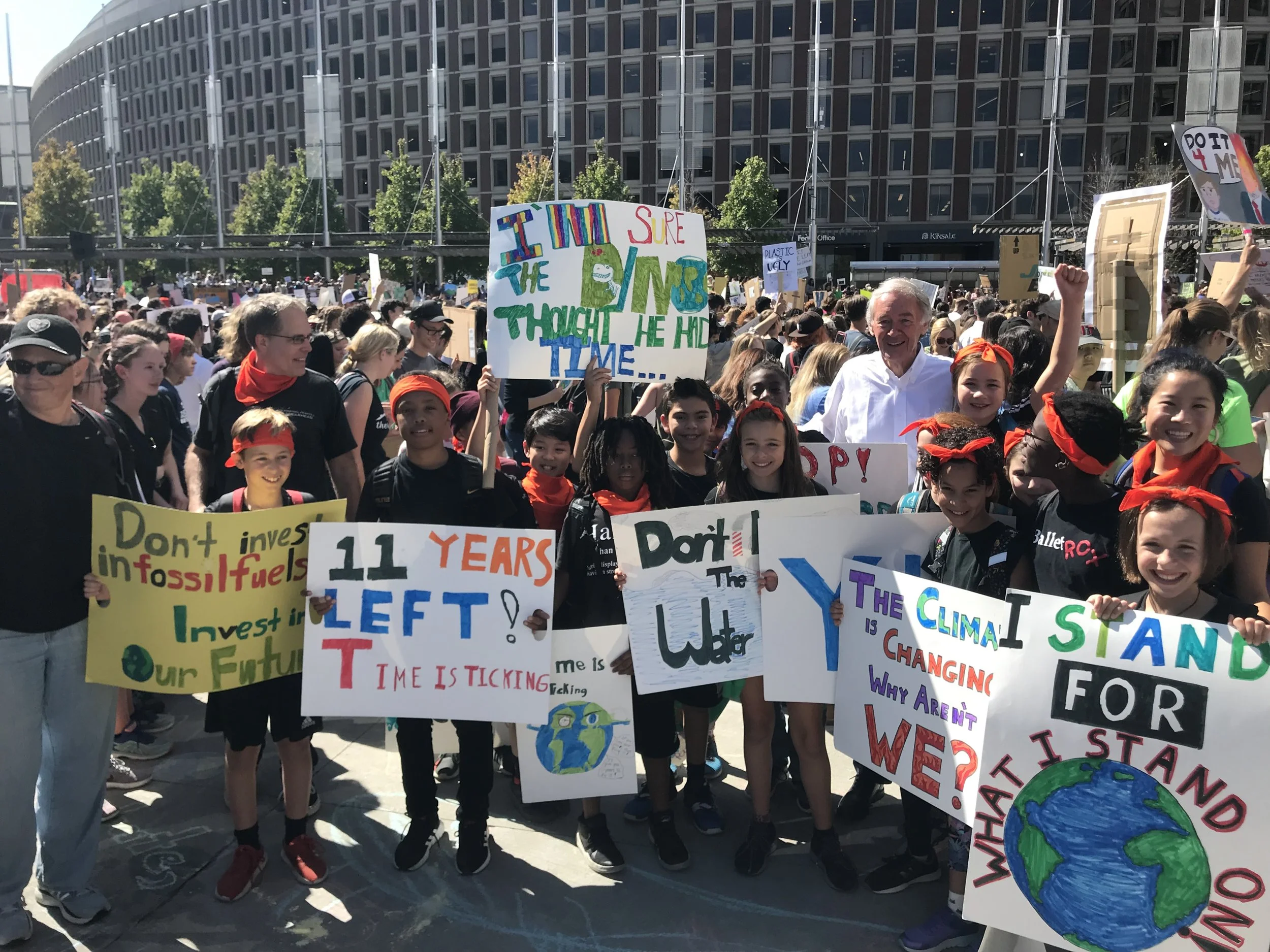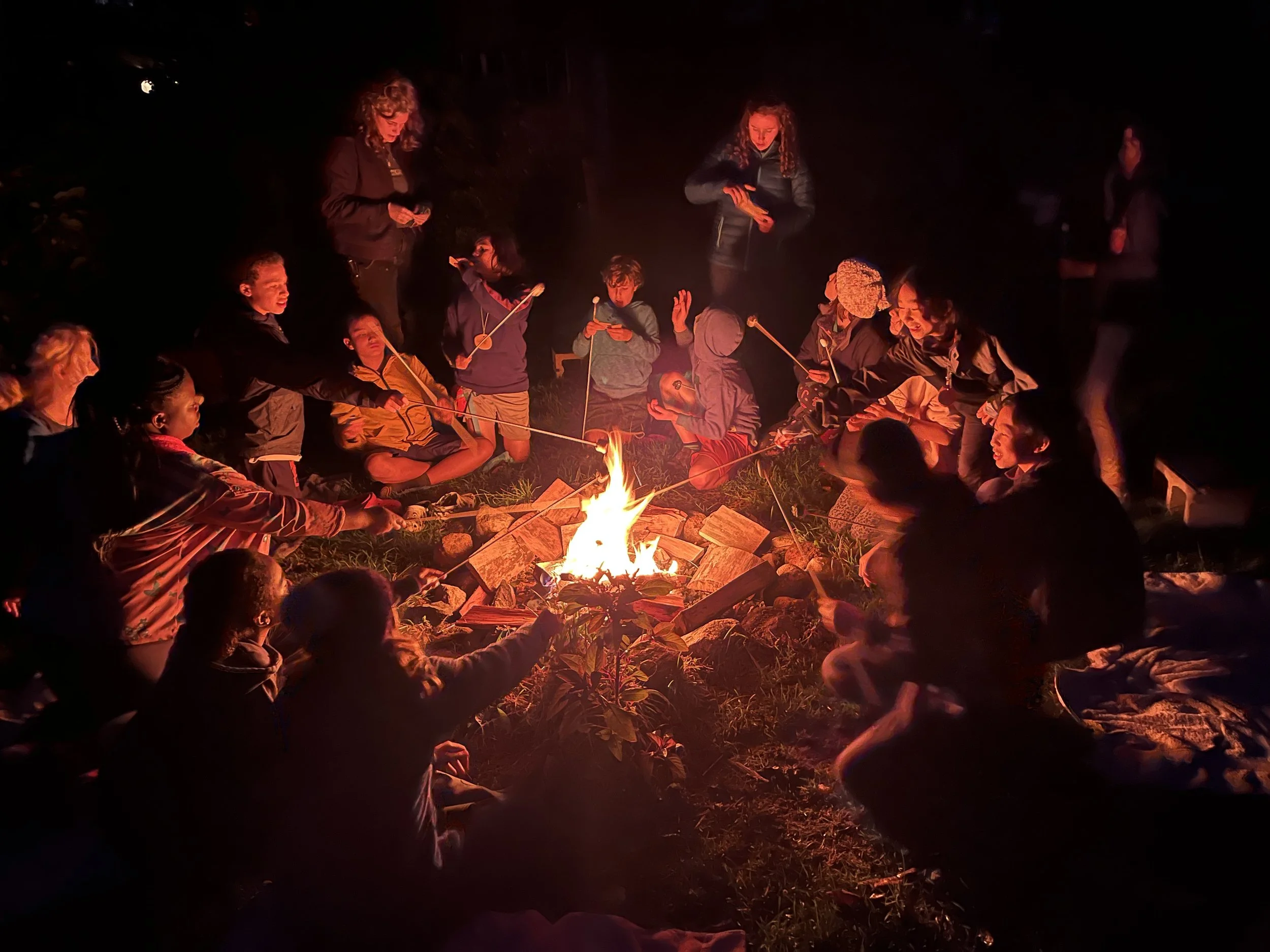Level Four
Level Four is home to the oldest students at Neighborhood School. The 5th and 6th graders mark their transition into pre-adolescence by going over to the “house across the street.” NS students look forward to the highly-anticipated culminating traditions and projects that distinguish the Level Four experience. L4 students take on sophisticated intellectual themes and create elaborate artistic work. Students contribute to their city in meaningful ways through authentic partnerships with grassroots community organizations. They are prepared for the challenges of middle school, while being firmly rooted in the playfulness, wonder, and unhurried pace of childhood.
Interdisciplinary Units of Study
The Young Reader’s Edition of Braiding Sweetgrass by Robin Wall Kimmerer was the basis for a semester-long study of botany, Indigenous history, and poetry translation. Students read primary sources, foraged in local parks, studied languages with translation mentors, and more. The process culminated in the class writing and performing a play at the Museum of Science, as well as meeting the author herself.
When reading The Only Road by Alexandria Diaz, students studied the history of Indigenous communities in Guatemala. They connected with Student Immigrant Movement (SIM) to support their campaign for undocumented college students to qualify for financial aid in Massachusetts. Through collecting oral histories and creating artistic pieces, L4 students contributed to this organizing campaign.
Students created a multimedia documentary about how literacy organizations such as libraries, bookstores, publishers, and writing centers help create a more equitable Boston. They first investigated this same question in the context of the Harlem Renaissance, through primary source analysis, novel study, and even learned how to tap dance!
Justice Learning in the City
After reading the novel Ghost Boys by Jewell Parker Rhodes and excerpts from the Young Readers Edition of Just Mercy by Bryan Stevenson, L4 students collaborated with local Black Lives Matter chapters to plan and lead neighborhood actions.
L4 students have attended many climate crisis related events, including this rally where they met Senator Ed Markey. To prepare for these events, students engage in rigorous scientific, sociological, and artistic study of climate change. They are supported to make sense of their emotions related to climate grief.
During an interdisciplinary unit on the history of redlining and gentrification in Boston, L4 students analyzed the Dudley Street Neighborhood Initiative as a case study of community organizing and resistance. They worked and learned with current organizations in Nubian Square, such as The Food Project.
Culminating Traditions and Projects
Level Four students look forward to leading the biannual school play. Other levels perform as well, but L4 students spend the whole year engaged in interdisciplinary study of the play’s topics and questions, and then collaborate with the drama teacher to write the script. Parents and other teachers support with costuming, stage managing, choreographing, and more. Recent shows have gone up at Roxbury Community College and the Museum of Science.
During their final semester at NS, students embark on an independent research project on a topic of their choosing. They design scientific experiments, create multimedia art, interview experts, and learn experientially in the field. During recent projects, students have visited zebrafish research labs, the birthplace of hip-hop in the Bronx, architecture firms, and cardiology units. Students present their findings and creations at Grad Project Night, where they become teachers for the whole school!
Going on an overnight trip to The Farm School is a highly-anticipated rite of passage. The Farm School is an incredible organization; their mission is to connect people to the land. There, L4 students learn from animals, plants, and farmers as they take care of a fully-operating farm that donates food across the state. Year after year, students discover reciprocity with nature, courage to take risks, and interdependence among peers.
